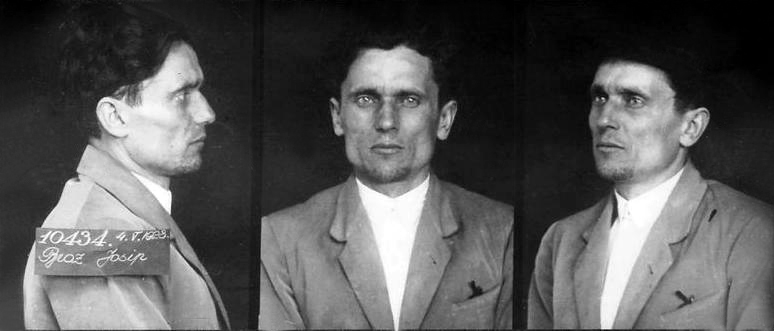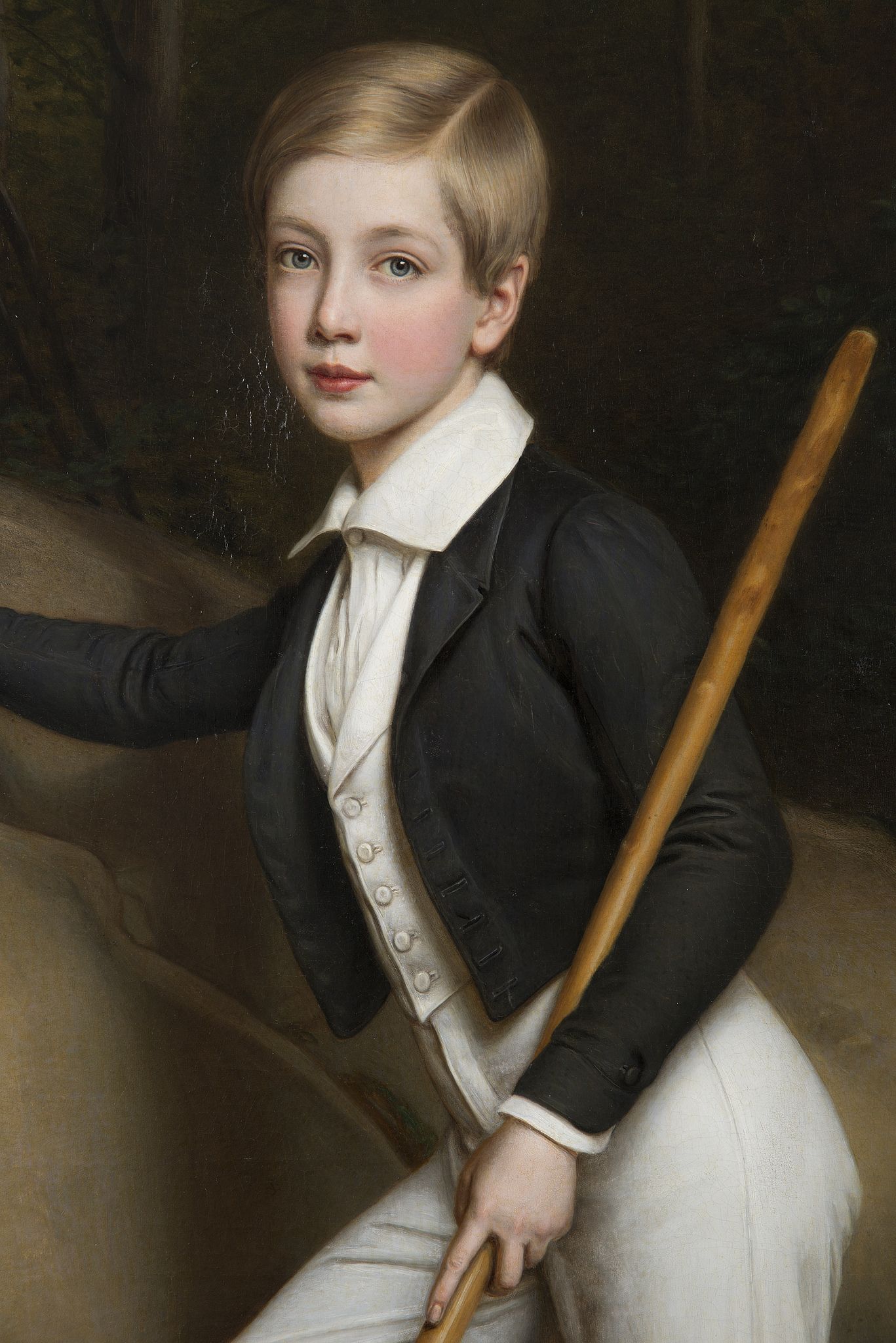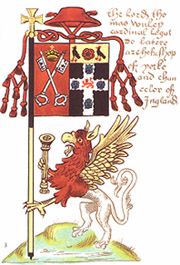|
Jasper Ridley (historian)
Jasper Godwin Ridley, FRSL (25 May 1920 – 1 July 2004) was a British writer, known for historical biographies. He received the 1970 James Tait Black Memorial Prize for his biography of Lord Palmerston. Born in West Hoathly, Sussex, he was educated at Felcourt School, Magdalen College, Oxford, and the Sorbonne. He trained and practised as a barrister, having been called to the bar by the Inner Temple in 1945, before starting to write. During the Second World War, he served with an air defence unit and manned an anti-aircraft battery at Portsmouth, where the man next to him was killed by shrapnel. He served on St Pancras Borough Council from 1945 to 1949, and stood, unsuccessfully, as Labour Party candidate for Winchester in 1955 general election. He married, in 1949, Vera Pollak, who died in 2002 and with whom he had two sons and a daughter. Works *''The Tate Gallery's Wartime Acquisitions'' (1942) *''The Law of the Carriage of Goods by Land, Sea and Air'' (1957) *'' Ni ... [...More Info...] [...Related Items...] OR: [Wikipedia] [Google] [Baidu] |
Fellow Of The Royal Society Of Literature
The Royal Society of Literature (RSL) is a learned society founded in 1820 by George IV of the United Kingdom, King George IV to "reward literary merit and excite literary talent". A charity that represents the voice of literature in the UK, the RSL has about 800 Fellows, elected from among the best writers in any genre currently at work. Additionally, Honorary Fellows are chosen from those who have made a significant contribution to the advancement of literature, including publishers, agents, librarians, booksellers or producers. The society is a cultural tenant at London's Somerset House. The RSL is an independent charity and relies on the support of its Members, Patrons, Fellows and friends to continue its work. History The Royal Society of Literature (RSL) was founded in 1820, with the patronage of George IV, to "reward literary merit and excite literary talent", and its first president was Thomas Burgess (bishop, born 1756), Thomas Burgess, Bishop of St David's (who was late ... [...More Info...] [...Related Items...] OR: [Wikipedia] [Google] [Baidu] |
Henry John Temple, 3rd Viscount Palmerston
Henry John Temple, 3rd Viscount Palmerston (20 October 1784 – 18 October 1865), known as Lord Palmerston, was a British statesman and politician who served as prime minister of the United Kingdom from 1855 to 1858 and from 1859 to 1865. A member of the Tories (British political party), Tory, Whigs (British political party), Whig and Liberal Party (UK), Liberal parties, Palmerston was the first Liberal prime minister. He dominated British foreign policy from 1830 to 1865, when Britain stood at the height of its imperial power. He held office almost continuously from 1807 until his death in 1865. He began his parliamentary career as a Tory, defected to the Whigs in 1830, and became the first prime minister from the newly formed Liberal Party in 1859. He was highly popular with the British public. David Brown argues that "an important part of Palmerston's appeal lay in his dynamism and vigour". Temple succeeded to Henry Temple, 2nd Viscount Palmerston, his father's Irish peera ... [...More Info...] [...Related Items...] OR: [Wikipedia] [Google] [Baidu] |
Josep Tito
Josip Broz ( sh-Cyrl, Јосип Броз, ; 7 May 1892 – 4 May 1980), commonly known as Tito ( ; , ), was a Yugoslavia, Yugoslav communist revolutionary and politician who served in various positions of national leadership from 1943 until his death in 1980. During World War II, he led the Yugoslav Partisans, often regarded as the most effective Resistance during World War II, resistance movement in German-occupied Europe. Following Yugoslavia's liberation in 1945, he served as its Prime Minister of Yugoslavia, prime minister from 1945 to 1963, and President of Yugoslavia, president from 1953 until his death in 1980. The political ideology and policies promulgated by Tito are known as Titoism. Tito was born to a Croat father and a Slovene mother in Kumrovec in what was then Austria-Hungary. Drafted into military service, he distinguished himself, becoming the youngest sergeant major in the Austro-Hungarian Army of that time. After being seriously wounded and captured by th ... [...More Info...] [...Related Items...] OR: [Wikipedia] [Google] [Baidu] |
Benito Juárez
Benito Pablo Juárez García (; 21 March 1806 – 18 July 1872) was a Mexican politician, military commander, and lawyer who served as the 26th president of Mexico from 1858 until his death in office in 1872. A Zapotec peoples, Zapotec, he was the first Indigenous peoples of Mexico, Indigenous president of Mexico and the first democratically elected Indigenous president in the postcolonial Latin America. A member of the Liberal Party (Mexico), Liberal Party, he previously held a number of offices, including the Governor of Oaxaca, governorship of Oaxaca and the presidency of the Supreme Court of Justice of the Nation, Supreme Court. During his presidency, he led the Liberals to victory in the Reform War and in the Second French intervention in Mexico. Born in Oaxaca to a poor rural Indigenous peoples of Mexico, Indigenous family and orphaned as a child, Juárez passed into the care of his uncle, eventually moving to Oaxaca City at the age of 12, where he found work as a domes ... [...More Info...] [...Related Items...] OR: [Wikipedia] [Google] [Baidu] |
Maximilian I Of Mexico
Maximilian I (; ; 6 July 1832 – 19 June 1867) was an Austrian Empire, Austrian archduke who became Emperor of Mexico, emperor of the Second Mexican Empire from 10 April 1864 until his execution by the Restored Republic (Mexico), Mexican Republic on 19 June 1867. A member of the House of Habsburg-Lorraine, Maximilian was the younger brother of Emperor Franz Joseph I of Austria. Before becoming Emperor of Mexico, he was commander-in-chief of the small Imperial Austrian Navy and briefly the Austrian viceroy of Kingdom of Lombardy–Venetia, Lombardy–Venetia, but was removed by the emperor. Two years before his dismissal, he briefly met with French emperor Napoleon III in Paris, where he was approached by Conservative Party (Mexico), conservative Monarchism in Mexico, Mexican monarchists seeking a European royal to rule Mexico. Initially Maximilian was not interested, but following his dismissal as viceroy, the Mexican monarchists' plan was far more appealing to him. Since Maxim ... [...More Info...] [...Related Items...] OR: [Wikipedia] [Google] [Baidu] |
Tudor Period
In England and Wales, the Tudor period occurred between 1485 and 1603, including the Elizabethan era during the reign of Elizabeth I (1558–1603). The Tudor period coincides with the dynasty of the House of Tudor in England, which began with the reign of Henry VII. Under the Tudor dynasty, art, architecture, trade, exploration, and commerce flourished. Historian John Guy (1988) argued that "England was economically healthier, more expensive, and more optimistic under the Tudors" than at any time since the ancient Roman occupation. Population and economy Following the Black Death (1348) and the agricultural depression of the late 15th century, the population of England began to increase. In 1520, it was around 2.3 million. By 1600 it had almost doubled to 4 million. The growing population stimulated economic growth, accelerated the commercialisation of agriculture, increased the production and export of wool, encouraged trade, and promoted the growth of London. The high ... [...More Info...] [...Related Items...] OR: [Wikipedia] [Google] [Baidu] |
Elizabeth I
Elizabeth I (7 September 153324 March 1603) was List of English monarchs, Queen of England and List of Irish monarchs, Ireland from 17 November 1558 until her death in 1603. She was the last and longest reigning monarch of the House of Tudor. Her eventful reign, and its effect on history and culture, gave name to the Elizabethan era. Elizabeth was the only surviving child of Henry VIII and his second wife, Anne Boleyn. When Elizabeth was two years old, her parents' marriage was annulled, her mother was executed, and Elizabeth was declared royal bastard, illegitimate. Henry Third Succession Act 1543, restored her to the line of succession when she was 10. After Henry's death in 1547, Elizabeth's younger half-brother Edward VI ruled until his own death in 1553, bequeathing the crown to a Protestant cousin, Lady Jane Grey, and ignoring the claims of his two half-sisters, Mary I of England, Mary and Elizabeth, despite statutes to the contrary. Edward's will was quickly set aside ... [...More Info...] [...Related Items...] OR: [Wikipedia] [Google] [Baidu] |
Henry VIII
Henry VIII (28 June 149128 January 1547) was King of England from 22 April 1509 until his death in 1547. Henry is known for his Wives of Henry VIII, six marriages and his efforts to have his first marriage (to Catherine of Aragon) annulled. His disagreement with Pope Clement VII about such an annulment led Henry to initiate the English Reformation, separating the Church of England from papal authority. He appointed himself Supreme Head of the Church of England and dissolution of the monasteries, dissolved convents and monasteries, for which he was List of people excommunicated by the Catholic Church, excommunicated by the pope. Born in Greenwich, Henry brought radical changes to the Constitution of England, expanding royal power and ushering in the theory of the divine right of kings in opposition to papal supremacy. He frequently used charges of treason and heresy to quell dissent, and those accused were often executed without a formal trial using bills of attainder. He achi ... [...More Info...] [...Related Items...] OR: [Wikipedia] [Google] [Baidu] |
Thomas More
Sir Thomas More (7 February 1478 – 6 July 1535), venerated in the Catholic Church as Saint Thomas More, was an English lawyer, judge, social philosopher, author, statesman, theologian, and noted Renaissance humanist. He also served Henry VIII as Lord Chancellor from October 1529 to May 1532. He wrote ''Utopia (book), Utopia'', published in 1516, which describes the political system of an utopia, imaginary island state. More opposed the Protestant Reformation, directing polemics against the theology of Martin Luther, Huldrych Zwingli and William Tyndale. More also opposed Henry VIII's separation from the Catholic Church, refusing to acknowledge Henry as supreme head of the Church of England and the annulment of his marriage to Catherine of Aragon. After refusing to take the Oath of Supremacy, he was convicted of treason on what he stated was false evidence, and was executed. At his execution, he was reported to have said: "I die the King's good servant, and God's first." Pope ... [...More Info...] [...Related Items...] OR: [Wikipedia] [Google] [Baidu] |
Thomas Wolsey
Thomas Wolsey ( ; – 29 November 1530) was an English statesman and Catholic cardinal (catholic), cardinal. When Henry VIII became King of England in 1509, Wolsey became the king's Lord High Almoner, almoner. Wolsey's affairs prospered and by 1514 he had become the controlling figure in virtually all matters of state. He also held important ecclesiastical appointments. These included the Archbishopric of York, Archbishop of York—the second most important role in the English church—and that of papal legate. His appointment as a Cardinal (Catholic Church), cardinal by Pope Leo X in 1515 gave him precedence over all other English clergy. The highest political position Wolsey attained was Lord Chancellor, the king's chief adviser (formally, as his successor and disciple Thomas Cromwell was not). In that position, he enjoyed great freedom and was often depicted as the ''alter rex'' ("other king"). After failing to negotiate an annulment of Henry's marriage to Catherine of Ara ... [...More Info...] [...Related Items...] OR: [Wikipedia] [Google] [Baidu] |
Eugénie De Montijo
Eugénie de Montijo (; born María Eugenia Ignacia Agustina de Palafox y Kirkpatrick; 5 May 1826 – 11 July 1920) was Second French Empire, Empress of the French from her marriage to Napoleon III on 30 January 1853 until he was overthrown on 4 September 1870. From 28 July to 4 September 1870, she was the ''de facto'' head of state of France. Born to prominent Spanish nobility, Eugénie was educated in France, Spain, and England. As Empress, she used her influence to champion "authoritarian and clerical policies"; her involvement in politics earned her much criticism from contemporaries.McQueen 2011, p. 3. Napoléon and Eugénie had one child together, Louis-Napoléon, Prince Imperial (1856–1879). After the fall of the Empire, the three lived in exile in England; Eugénie outlived both her husband and son and spent the remainder of her life working to commemorate their memories and the memory of the Second French Empire. Youth María Eugenia Ignacia Agustina was born on 5 Ma ... [...More Info...] [...Related Items...] OR: [Wikipedia] [Google] [Baidu] |
Napoleon III
Napoleon III (Charles-Louis Napoléon Bonaparte; 20 April 18089 January 1873) was President of France from 1848 to 1852 and then Emperor of the French from 1852 until his deposition in 1870. He was the first president, second emperor, and last monarch of France. Prior to his reign, Napoleon III was known as Louis Napoleon Bonaparte. He was born at the height of the First French Empire in the Tuileries Palace at Paris, the son of Louis Bonaparte, King of Holland (r. 1806–1810), and Hortense de Beauharnais, and paternal nephew of the reigning Emperor Napoleon I. It would only be two months following his birth that he, in accordance with Napoleon I's dynastic naming policy, would be bestowed the name of Charles-Louis Napoleon, however, shortly thereafter, Charles was removed from his name. Louis Napoleon Bonaparte was the first and only president of the French Second Republic, 1848 French presidential election, elected in 1848. He 1851 French coup d'état, seized power by force i ... [...More Info...] [...Related Items...] OR: [Wikipedia] [Google] [Baidu] |










